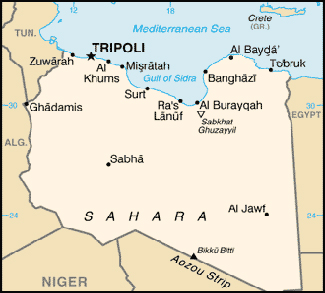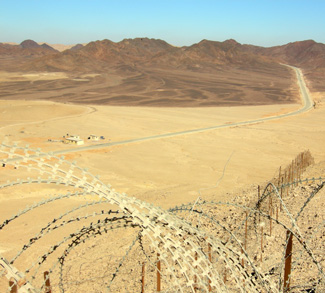News outlets, think tanks, and politicians worldwide are discussing the huge dilemma now faced by Washington on the shape and structure of US-Egyptian relations after the Egyptian Army toppled the democratically elected government of President Mohamed Morsi on July 3rd. U.S. President Barack Obama and his administration must decide between supporting democracy or supporting the popular opposition against the Muslim Brotherhood (MB) in Egypt. This decision will have a major influence on future relations between the two countries, particularly on the issue of aid.
If President Obama chooses to abide by democratic principles, then he will characterize what happened in Egypt as a military coup. Consequently, Obama will be forced to comply with a U.S. law that bans “any assistance to the government of any country whose duly elected head of government is deposed by military coup d’état or decree.” Given that most U.S. aid goes to the armed forces, weakening the army (the only stable and reliable institution in Egypt at present) might end up reinforcing the MB and other extremists in Egypt, in which case no one can eliminate the possibility of a civil war. However, if he stands by the millions of Egyptians who gathered in Tahir Square and demanded the departure of Morsi, then the removal of the president will be sanctioned and the MB political project in Egypt and the MENA will go underground.
U.S. efforts to spread democracy in the MENA however will be smeared with hypocrisy.
After meeting with top advisers in the White House, Obama expressed in a statement his “grave concern” about the situation in Egypt but never used the word “coup.” And given July 11th reports that the U.S. is going ahead with the delivery of four F-16s to the Egyptian military, it is highly unlikely that the word will be appearing in official U.S. statements anytime soon.
To understand US-Egyptian relations, we need to realize that the U.S. has two distinctive channels through which Washington implements it policies: one with the Egyptian presidency, and the other with the Egyptian Army.
The army is mostly independent from other state institutions in Egypt, and as such it exerts a large influence on financial and administrative affairs in isolation from civilian leadership. According to the constitution, the defense minister is assigned from army officers. The Army budget is unsupervised by the parliament or the government, instead falling under the purview of the National Defense Council, which itself is dominated by the military. Moreover, the military budget is not limited to armaments; it stretches to incorporate factories and food companies, land holdings and many other areas, amounting to an estimated one-third of the Egyptian economy. In this sense, the Egyptian Army needs to continue receiving U.S. aid to float the national economy. The U.S., in turn, needs the Egyptian Army so as not to lose its influence in Egypt. After the Revolution, which manifested a potential threat to U.S. interests, Washington was keen to preserve the conditions that would ensure the continuation of the strategic alliance between the two countries and maintain U.S. influence in the region. The importance of Egypt to Washington, (given the substantial benefit the U.S. previously derived from the Mubarak regime and his army in return for the U.S. aid) is manifest in Egypt’s faithful adherence to its obligations toward Israel and in convincing other parties in the region to seek peace. In addition, the Egyptian Army facilitates applications for the U.S. military to cross the Suez Canal and utilize Egyptian airspace. Some U.S. military equipment is also stored in Egypt.
This mutually beneficial relationship compels the U.S. administration to support the Egyptian Army because it has been the only stable and reliable partner in Egypt in the past. On the other side, this tends to make the Egyptian military compliant when it comes to U.S. requests.
The U.S. is also important to Adli Mansour, Egypt’s interim president, because of what the U.S. can offer in terms of avoiding economic collapse. Even the most optimistic visions confirm that the Egyptian economy is going through an intensifying crisis. The new president – like Morsi before – will most likely plead for loans and financial aid from the international community, and the most important loans he will be eager to secure are those from the International Monetary Fund. An agreement with the IMF could open the door for aid amounting to $12 billion from other reluctant financiers, including the European Union, the United States and Gulf Arab states (especially Saudi Arabia and Qatar). The loan may also reassure investors and attract the foreign investment that Egypt is desperate to bring back. Because the IMF Fund is mainly subject to the control of the U.S, it is imperative that the new president get Washington’s support in order to be thrown a financial lifeline.
In this sense, the U.S. has two tools to shape its relations with the new Egyptian regime: The economic crisis and the armed forces. The new Egyptian government will inevitably have to contend with the legacy of the Second Revolution: all Egyptianeconomic and societal problems were blamed on Morsi, the military and the opposition used these grievances to fuel public anger, and eventually ousted Morsi and his government. Therefore, the new president will approach the U.S. with caution knowing that he will always have the shadow of the Army on his path.
As for the United States, it will continue keeping a balance between its relations with the Egyptian presidentand the Egyptian army. The balance will always shift to the side that ensures the continuity of Egypt’s commitment to the following: the Camp David Peace Treaty, the retention of a demilitarized Sinai, retaining multinational troops and observers led by the U.S., maintaining gas exports to Israel, isolating Hamas, resisting Iran’s efforts to expand its influence, resisting al-Qaida, and keeping the Suez Canal open.
The opinions, beliefs, and viewpoints expressed by the authors are theirs alone and don’t reflect any official position of Geopoliticalmonitor.com.




